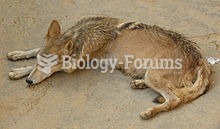Question 1
According to this broadside from Lincoln's 1864 presidential campaign, the victory of his Democratic opponent, George B. McClellan, would result in __________.
A) the continuation of slavery
B) reunification with the South
C) victory for the Confederates
D) freedom for slaves
Question 2
How did John Vanderlyn's painting depicting the death of Loyalist Jane McCrea by Mohawk Indians influence and shape colonial attitudes during the American Revolution?
A) American perceptions about Indians being barbaric savages were intensified.
B) American Patriots deepened their resentment toward Loyalists in the colonies.
C) Americans realized that the sacrifices made by colonial women entitled them to participate in
political affairs.
D) Americans recognized the heroic efforts of Indians who sided against the British and their
Loyalist supporters.
Question 3
Why were the methods of curbing the extent of Spanish Influenza that are depicted in these two images unsuccessful in stopping this illness from spreading?
A) Spanish Influenza was an air-borne virus that was not spread by droplets and could also
penetrate masks.
B) The influenza virus was spread through flea bites that penetrated the blood system.
C) Spanish Influenza was more prominent among children and the elderly and not in workingclass adults.
D) Spraying areas with topical disinfectants was more successful than the methods shown in
these images.
Question 4
Who did Lincoln name as commander of all the Union armies in 1864?
A) William T. Sherman
B) Joseph Hooker
C) Ulysses S. Grant
D) George Meade
Question 5
Based on the table above, the Supreme Court focused primarily on hearing cases dealing with __________ during the 1960s.
A) workers' rights
B) empowerment of big business
C) civil rights
D) individual rights
Question 6
Why did many Indian nations ally with the British during the American Revolution?
A) They believed that they could defeat the British following a victory over the Americans.
B) The British had promised to cede territory within the thirteen colonies to them.
C) The British regarded them as equals, whereas the colonists did not.
D) They feared that a Patriot victory would mean westward expansion into their territory.








